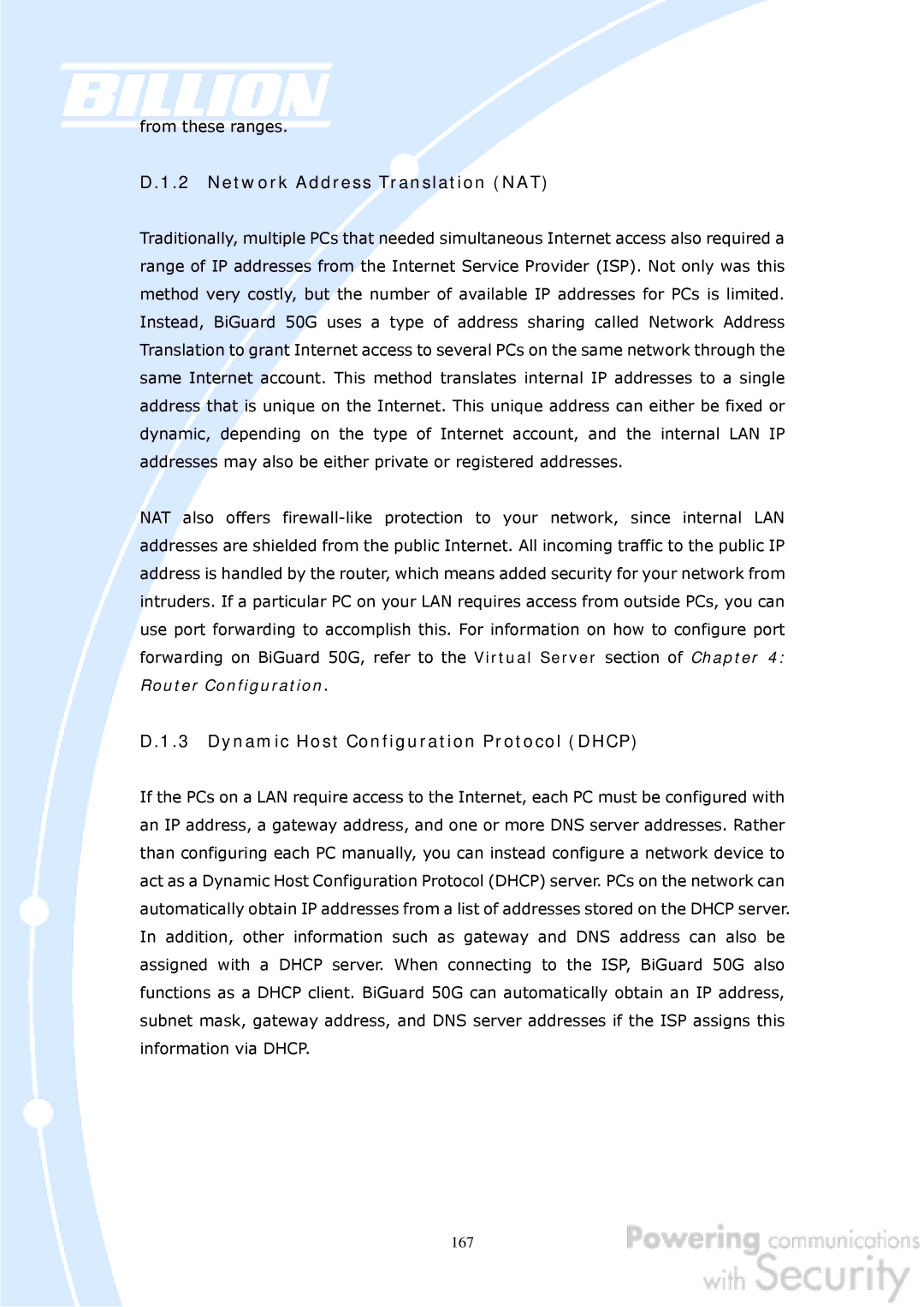
from these ranges.
D.1.2 Network Address Translation (NAT)
Traditionally, multiple PCs that needed simultaneous Internet access also required a range of IP addresses from the Internet Service Provider (ISP). Not only was this method very costly, but the number of available IP addresses for PCs is limited. Instead, BiGuard 50G uses a type of address sharing called Network Address Translation to grant Internet access to several PCs on the same network through the same Internet account. This method translates internal IP addresses to a single address that is unique on the Internet. This unique address can either be fixed or dynamic, depending on the type of Internet account, and the internal LAN IP addresses may also be either private or registered addresses.
NAT also offers
D.1.3 Dynamic Host Configuration Protocol (DHCP)
If the PCs on a LAN require access to the Internet, each PC must be configured with an IP address, a gateway address, and one or more DNS server addresses. Rather than configuring each PC manually, you can instead configure a network device to act as a Dynamic Host Configuration Protocol (DHCP) server. PCs on the network can automatically obtain IP addresses from a list of addresses stored on the DHCP server. In addition, other information such as gateway and DNS address can also be assigned with a DHCP server. When connecting to the ISP, BiGuard 50G also functions as a DHCP client. BiGuard 50G can automatically obtain an IP address, subnet mask, gateway address, and DNS server addresses if the ISP assigns this information via DHCP.
167
